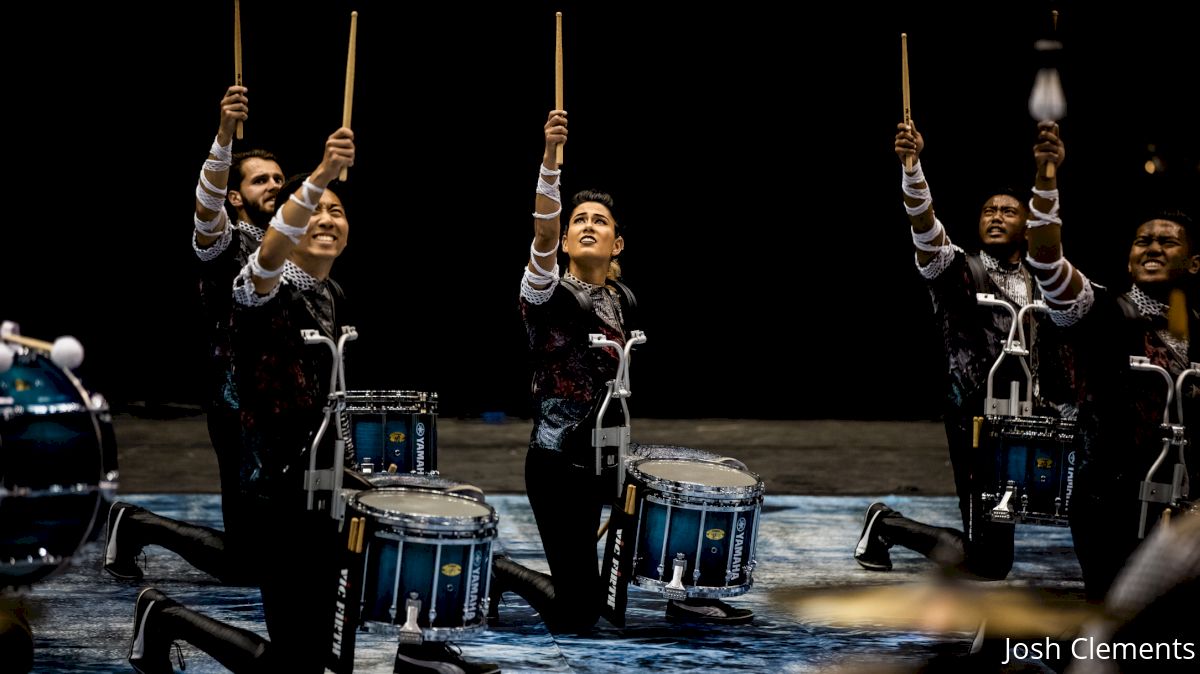Three Biggest Takeaways From Percussion World Class Finals
Three Biggest Takeaways From Percussion World Class Finals
With the 2019 percussion season in the rearview mirror, read up on the top competitive takeaways from Saturday night's World Class finals.

Unlock this article, live events, and more with a subscription!
Already a subscriber? Log In
Well, that’s all, folks.
WGI Percussion 2019 is in the books, as are the shows, storylines and moments that made this season special. Looking ahead, this year left us with plenty of competitive topics to chew on, specifically among those at the World Class level.
Heading into another indoor percussion offseason, here are the three biggest takeaways from 2019’s World Championships action:
Is anyone going to stop Chino Hills?
It’s starting to become pretty incredible just how dominant Chino Hills is. We’d seen this group win back-to-back gold medals during its reign of terror, but with Saturday’s results, Chino Hills has now won three in a row for the first time ever, making it six of the last eight years that they’ve brought home a title.
So, let’s take a quick look at those three years in a row that have now seen Chino Hills top Scholastic World.
Last year, it was Dartmouth that came closest to toppling Chino Hills. The gap between the two was over a point and a half. Dartmouth, this year, ended up in fourth. Otherwise, in 2017 and 2019, it’s been Arcadia taking second place, never within half a point of the gold.
Basically, over the past three years, no one has really made it incredibly close for Chino Hills; they’ve been able to win their three titles by an average of 1.34 over the field. (2017 — 1.8, 2018 — 1.587)
There are plenty of groups that have shown up on the competitive stage during the most recent stretch of Chino Hills titles — take Arcadia, Dartmouth, Ayala, and Avon, for example — so it’ll take one of them continuing to take steps forward in order to shake things up in PSW.
There are a lot of sleeping giants in PIW
So, the last two years have now featured the exact same top five, just in a different order. Those five are Pulse Percussion, Broken City, Music City Mystique, Rhythm X and RCC. Other than Rhythm X’s 6th in 2017, those five have pretty much had the top five locked down for four years now.
But, we’re starting to see some really good groups show potential in the next tier. Obviously, there’s Matrix, which has now finished in the top six two of the past three years, but hasn’t contended for medals in quite some time.
From there, there’s Monarch (7th), POW Percussion (8th), Infinity (9th), George Mason University (10th), Dark Sky Percussion (11th) and even a handful of others that could make things interesting near the top if they’re able to build on recent success.
The Golden Coast has taken over
Alright, let’s just break this down real quick…
California groups in PIW finals: Broken City (1st), Pulse Percussion (2nd), RCC (5th), POW Percussion (8th), Dark Sky Percussion (11th). That’s 60% of the top five, 50% of the top eight, and 33% of all finalists.
And in PSW: Chino Hills (1st), Arcadia (2nd), Ayala (5th), Etiwanda (7th), Homestead (8th). That’s 60% of the top five, 62.5% of the top eight, and again, 33% of all finalists.
If I were to throw out those numbers and say that those proportions came from, say, a given region of states, that would make sense. We’re talking about one state.
This isn’t exactly a ground-breaking assertion — California has always had a plethora of World Class talent — but especially with the rises of groups like POW, Dark Sky, Etiwanda and Homestead to join those other Golden State’s powers, it’s becoming even more prevalent.
That’s not to mention, Broken City, with its final score of 98.850, broke a record previously held, of course, by another California ensemble, RCC, since 2015.